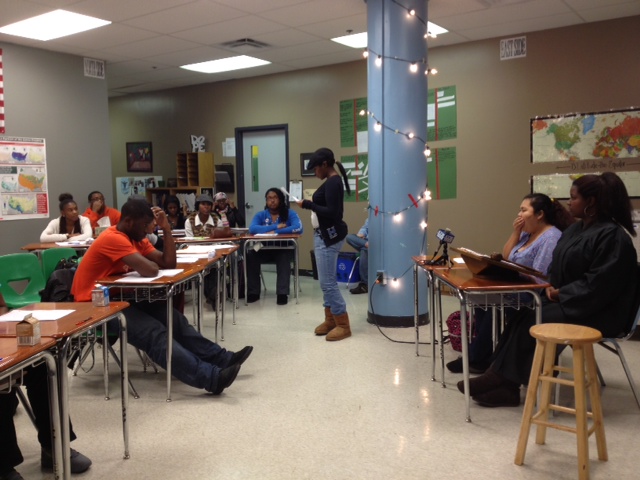Students Judged By Peers At Center City Charter School
By Cherri Gregg
PHILADELPHIA (CBS) – Youth court allows teenagers to serve as jurors, judges and attorneys, handling real-life cases involving their peers.
"All Rise! Arise Charter Youth Court is now in session," saidone student at Arise Charter School.
About 15 students sat as judge, prosecutor and jury over a case involving DeQuan, who agreed to allow his peers to decide his fate as an alternative to the usual process of punishment. The students look at the offender's grades, past offenses and other factors to determine the proper outcome of the case.
"He cuts class, he has numerous lateness, he has poor grades," said one of the student prosecutors in the case.
But DeQuan was not left on his own. He had three student defenders and testified on his own behalf. He explained to the student jury that he is late many days because he must care for his young siblings; feeding them, clothing them and taking them to school before he can attend his own classes.
"Instead of judging them on how they act, we understand and we help them," said Taylor, who was the judge in the case. She said it was helpful to learn why DeQuan was chronically late before making a determination of his fate.
"When we go through cases like these, we can show them a little more emotion and understand where they are coming from," Taylor said.
The jury ordered DeQuan to attend tutoring sessions, file daily attendance reports and attend a male empowerment program on Saturdays.
"I am happy that everybody is helping me," DeQuan said after he received his verdict.
But the judgment was a difficult for one the students, which they take extremely seriously.
"Sometimes it takes a toll on you," said Mike. "Sometimes your friends come in here and other times it's just too much. You never know someone else's circumstances. You're on the outside looking in, you never know why someone acts the way they do."
At 11th and Market Street, Arise Charter School has less than 300 students. And the school is small for a reason; half of the student population is under the care of DHS.
Keith Bailey is Director of Person Violence Prevention Program for Physicians for Social Responsibility. He says the program gives power back to the young people, who many times feel powerless over their lives.
"It gives students an opportunity to have an active role in developing their school climate," said Bailey. "At the same time, they are developing leadership skills and will be looked upon as leaders among their peers."
Youth court hears cases dealing with a range of low-level offenses, cases that would otherwise wind up in Truancy Court or with out-of-school suspensions.




